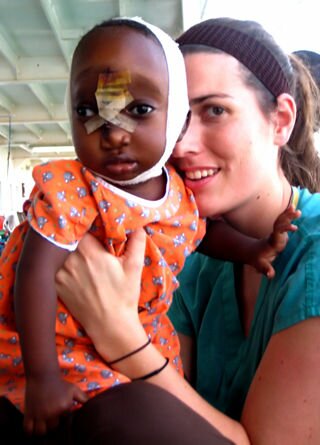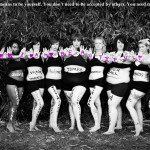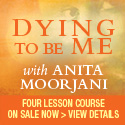
Photo Credit: http://solofemininity.blogs.com/posts/2008/11/alis-african-adventures.html
Tonight, I was sitting on my couch minding my own business when 60 Minutes came on.
The segment was on African Mercy, the largest civilian hospital ship on the sea. The ships bring medical care to mostly West Africans who “suffer from diseases unseen in America-illnesses that can make you believe in curses.”
The ships doctors and nurses volunteer their time on the ship. Some stay for months, but as Dr. Gary Parker put “When I get an opportunity I want to come, maybe for a few months, and just see what this is about.” He stayed for more than a few months. He stayed for twenty-six years.
One of the most common illnesses people suffer from “include a particular kind of facial tumor that is a specialty of the ship…These tumors aren’t cancer, they’re benign. In fact, it’s tooth enamel that won’t stop growing. In the U.S., a dentist would remove it before it shows. But here, it’s understood to be a curse.”
When you are cursed in these West African countries, you are shunned. Thrown out of your house, forced to hide, forced to be isolated from the rest of the community. These doctors and nurses not only give them a new chance at life, but many times, they are the first people to make the patient feel human. They are the first people to dispel the curse. As Gary Parker states, “I’ve seen it happen over and over and over again that when they are greeted on the ship, or when they’re greeted at screening and someone comes and shakes their hand, it’s like “Somebody recognizes that I’m inside here.” You know, “I’m trapped. I can’t get away from this tumor. But I’m still in here.” And the healing begins when they get acceptance based on who they are, no conditions, just, “we know you’re in there, Fatimata, we know you’re in there.”
Faces flashed across the screen: old faces, young faces. Faces damaged by tumors, so big they can hardly breath. The doctors and nurses give their whole lives to these ships. They live on them. They raise their children on them. All so they can give the poorest of the poor (a kind of poor most of us (even if we’ve been poor in America) can’t even imagine.) a chance at life.
There are so many philanthropists who give large amounts of money and in return they want something. They want recognition. They want a bigger parking space. They want a wall with their name. They want people to part ways when they walk into the room. It bothers me deeply. In Judaism, the greatest deed you can perform is to give anonymously when you expect something in return, it is no longer a good deed.
On African Mercy, the doctors not only volunteer their time, but they pay their way. The only thing they expect in return is that people get their lives back. That people are no longer shunned. And even more, they also train local doctors to continue the work, so they can continue the work when the ship leaves for other countries.
While I realize that at the core these ships are christian missions, it doesn’t really matter. What matters is that they are doing the work for Jesus or Buddah or because they were sitting on their on a couch on a Sunday night and they felt compelled to act.
There is nothing wrong with worrying about our own lives; our own troubles. We spend a lot of time on this site talking about body image, self-image and self-esteem. We worry about how we look in clothes. How we look naked. How we look to our partners, our friends, our co-workers, our mothers. We worry about being fat or thin. We worry about our big noses, our brown hair, our skin color, our…everything.
Maybe, we need to take a moment and remember that we should also have mercy for others…
 Over-sharing Zavtik Mama, Editor, Writer, Yiddish Lover, Reform Jew, Director, Listen To Your Mother: Wilmington, and the Not-So-Silent B in LGBT, — Shoshana Rachel puts the Shosh in Meshuga one word at a time. Read her ever-evolving voice on her blog, Shoshuga or follow her on . For her bigger fight on female equality, see her vlog on the great Jewish Women’s Organization Women of the Wall.
Over-sharing Zavtik Mama, Editor, Writer, Yiddish Lover, Reform Jew, Director, Listen To Your Mother: Wilmington, and the Not-So-Silent B in LGBT, — Shoshana Rachel puts the Shosh in Meshuga one word at a time. Read her ever-evolving voice on her blog, Shoshuga or follow her on . For her bigger fight on female equality, see her vlog on the great Jewish Women’s Organization Women of the Wall.


 Beautiful as I am
Beautiful as I am










Mercy Ships is an awesome ministry! One of my girlfriends served for a few years on a ship with her husband as teachers for the kids living on board. She still says those were some of the best years of her life – really seeing how people could effect a change for the world even though they were, “just teachers.”